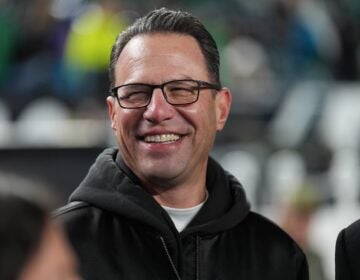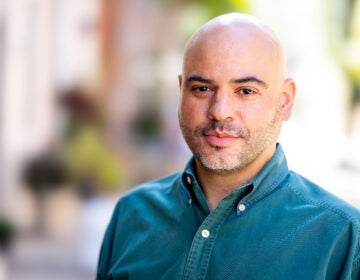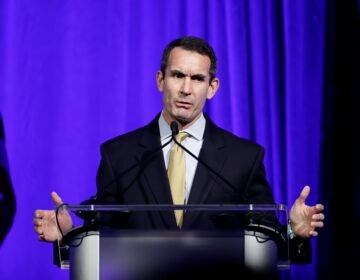Opioids and gun violence top of mind for Pa. attorney general candidates at Philly forum
Four candidates participated in a panel debate on April 4 at the Public Health Management Corporation in Philadelphia.
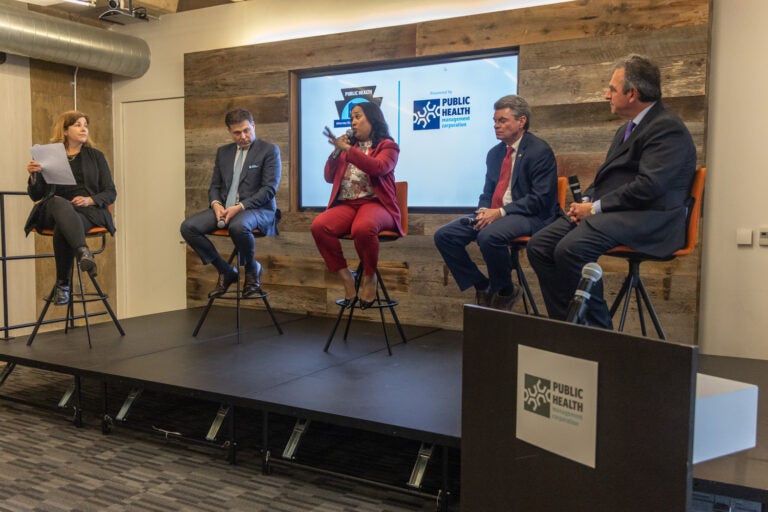
Philadelphia’s Public Health Management Corporation held a debate of Pa. candidates for Attorney General hosted by WHYY News’ Maiken Scott (left), with Jared Solomon (second from left), Keir Bradford-Grey (center), Jack Stollsteimer (second from right) and Eric Settle (right). (Kimberly Paynter/WHYY)
What questions do you have about the 2024 elections? What major issues do you want candidates to address? Let us know.
Candidates running to become Pennsylvania’s next Attorney General say addressing the opioid epidemic, gun violence and public safety would be among their priorities as the state’s top law enforcement official.
Four of the race’s candidates participated in a panel debate Thursday at the Public Health Management Corporation in Philadelphia. Maiken Scott, host and executive producer of The Pulse at WHYY, moderated the event.
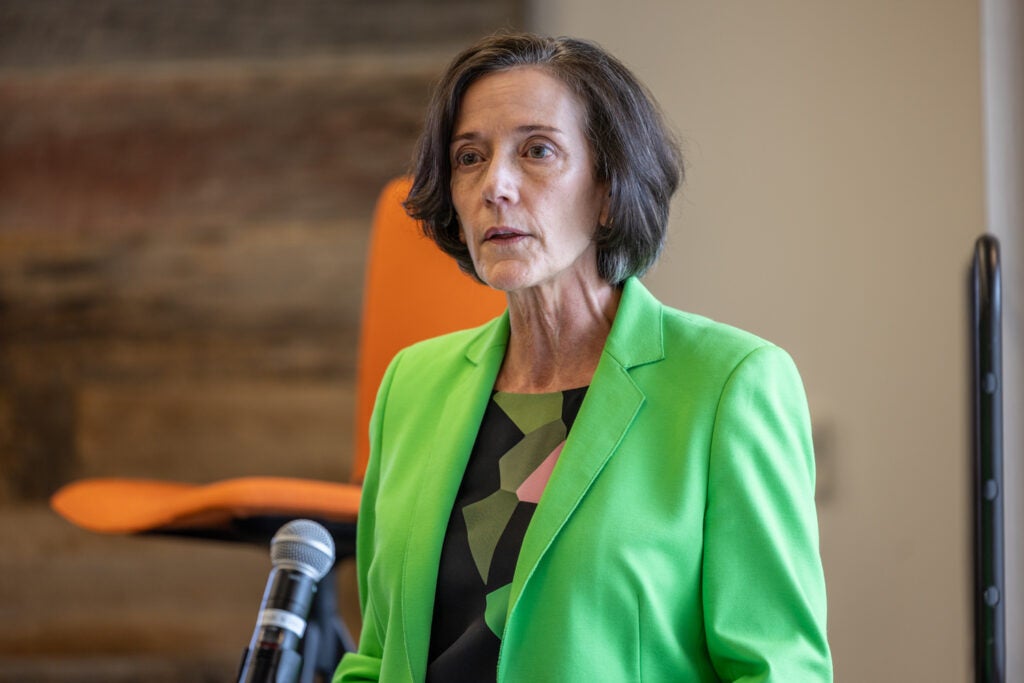
As the top law enforcement official of the state, the attorney general’s office can impact everything from treatment access for people with addiction to diversion programs for young criminal offenders.
Candidates who participated in the panel debate included:
- Keir Bradford-Grey, Democratic Party candidate and former Philadelphia Chief Public Defender.
- Eric Settle, Forward Party candidate and former Montgomery County Republican.
- Jared Solomon, Democratic Party candidate and state legislator representing Northeast Philadelphia.
- Jack Stollsteimer, Democratic Party candidate and current Delaware County District Attorney.
Opioid settlement funding, addiction treatment and harm reduction
Pennsylvania is set to receive up to $1.07 billion over the next 18 years in settlement money from national lawsuits against drug distributors McKesson, Cardinal Health, AmerisourceBergen, and manufacturer Johnson & Johnson.
Payments to state agencies, cities and counties began in 2023 and are distributed annually. The money is earmarked for addiction treatment, prevention and recovery services, but the list of possible uses is broad.
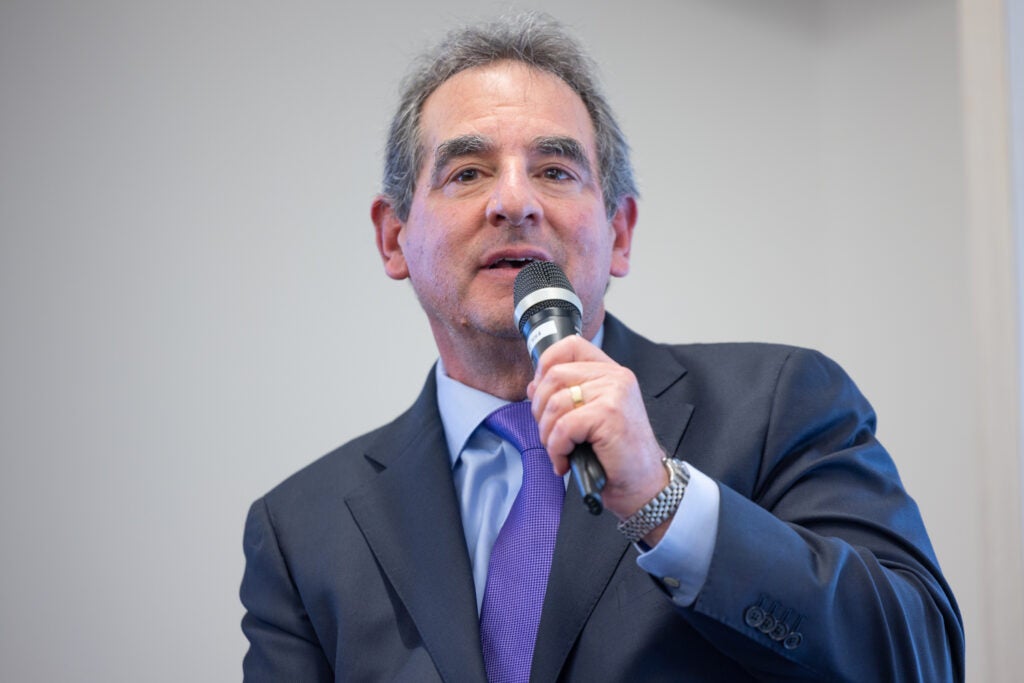
Settle, on settlement spending strategies:
“It’s a matter of trying to figure out which of the programs in which of the counties will work. Obviously, we have different counties in Pennsylvania. There are 67 counties. There are different issues — Philadelphia County, Montgomery County, Delaware County, very different than some of the counties in the west.”
Stollsteimer, on uses of harm reduction tools:
“Saving someone’s life [with naloxone] had to be taught to our police officers. We’ve done that. Now, we need to do the same on some level of harm reduction, but it has to be something that the community is comfortable with. So, when you talk about syringe exchanges, that’s a lot more different, I think, than some of the other harm reduction ideas that are out there. I think, again the community needs to weigh in on these things.”
Bradford-Grey, on treatment-centered pathways:
“When we come to making sure that we’re not enabling people to continue a lifestyle that is not only impacting them, impacting their communities, impacting our health care systems and far beyond…we need to have models of treatment approaches that are more appropriate. We cannot just syringe exchange and enable an addiction problem without having a model that is set up and structured for real treatment opportunities.”
Solomon, on widespread access and locations of services:
“When I hear about these programs, nine out of 10 times, the people who are advocating for them [live] in the most affluent parts of the suburbs or the city of Philadelphia, and they want to put those needle change programs in communities like mine [Northeast Philly]. If mental health, addiction treatment is truly going to be a community-based solution, a citywide and a Commonwealth-based solution, that responsibility has to be shared by all residents of our city and our Commonwealth.”
Gun laws and gun violence
Gun violence is higher in cities like Philadelphia, where 1,665 people became victims of a shooting in 2023, according to city data. Of those, 373 people died.
Solomon, on investing in collaborative approaches:
“A gun violence task force partnership between the attorney general and the local district attorneys, this is widely popular in other states. It breaks through agency silos, brings local, state, federal government, U.S. attorneys together in partnership to focus on and target the few blocks that cause the highest amount of gun violence. We need to embrace that throughout the Commonwealth.”
Settle, on reducing the number of weapons on the street:
“I think the first thing is, how do we control guns? How do we remove assault weapons from our streets? That’s super important. And school shootings … almost every time, there’s an AK-47, there’s an assault weapon being used. Even though Pennsylvania has a long history of hunting and sportsman’s [firearm permits], we just can’t have those weapons, and we have to find a way to get an assault weapons ban back in place.”
Stollsteimer, on expanding ‘focused deterrence’ programs:
“1% of people do 75% to 80% of the shooting. If we focus on those people, give them a way out, ‘we’ll help you get out of this life if you let us, but we’re going to stop you if you make us,’ that’s the program we brought successfully to many communities in Philadelphia and in this region.”
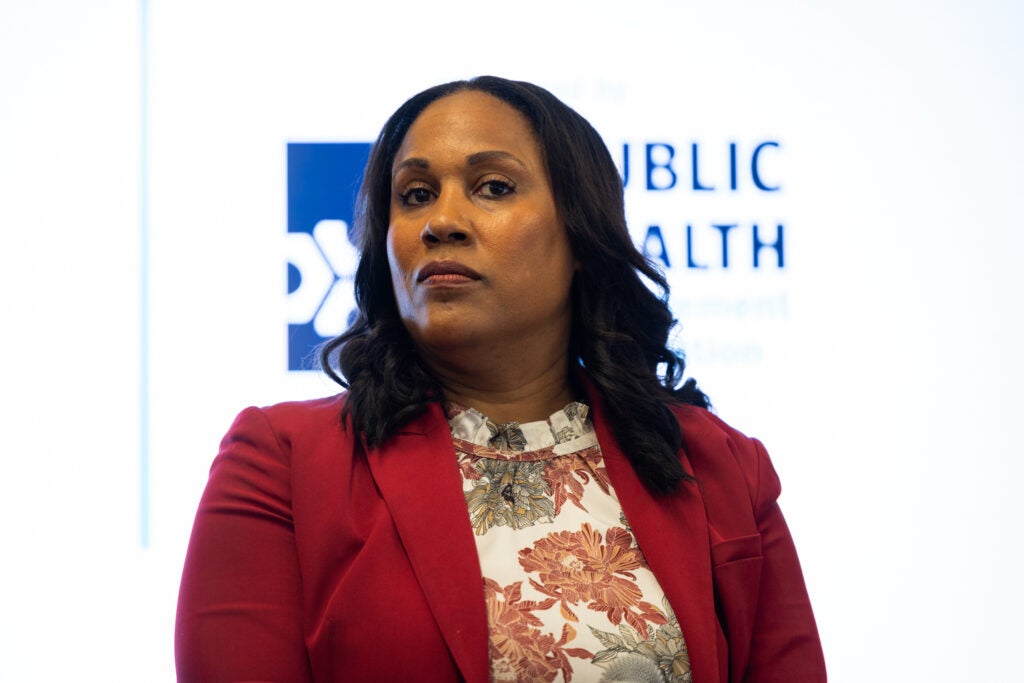
Bradford-Grey, on shutting down access to ‘black market’ guns and ghost guns:
“I know the kids that had guns that I represented didn’t go into the store and buy them. They got them from the black market and that black market has to be targeted. We also have to close the loop on ghost guns. That is the gun of choice. When you want to do something illegal, you get an untraceable gun, and we have made it easy — people can ship gun parts all throughout the country, especially in the Commonwealth, and not have any consequences for that.”
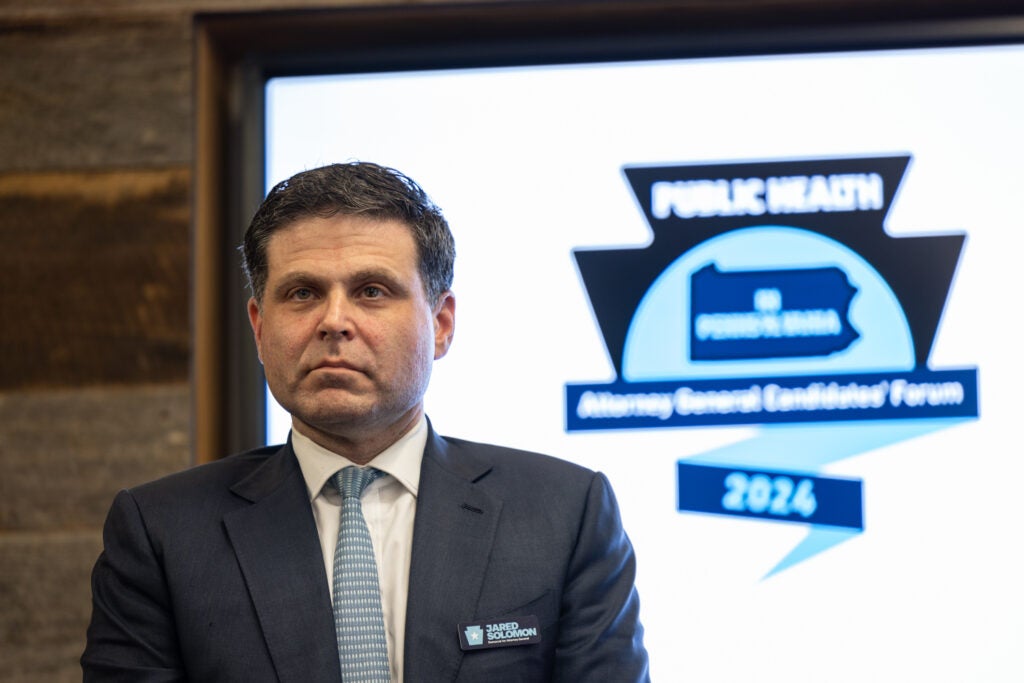
The number of contenders for the Attorney General seat will narrow this month following primary elections on April 23. The general election is Nov. 5.

Get daily updates from WHYY News!
WHYY is your source for fact-based, in-depth journalism and information. As a nonprofit organization, we rely on financial support from readers like you. Please give today.


